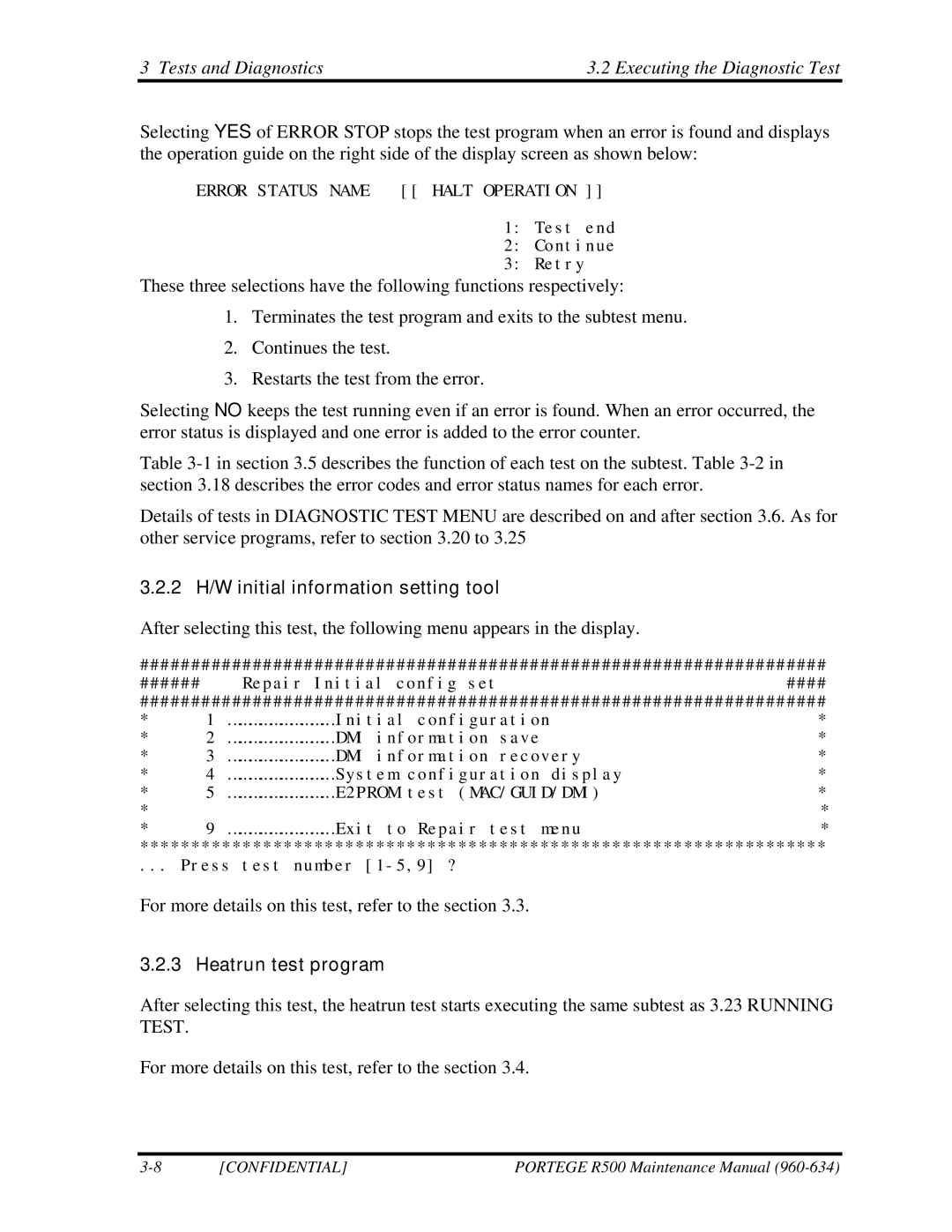3 Tests and Diagnostics | 3.2 Executing the Diagnostic Test |
Selecting YES of ERROR STOP stops the test program when an error is found and displays the operation guide on the right side of the display screen as shown below:
ERROR STATUS NAME | [[ HALT OPERATION ]] |
1: Test end
2: Continue
3: Retry
These three selections have the following functions respectively:
1.Terminates the test program and exits to the subtest menu.
2.Continues the test.
3.Restarts the test from the error.
Selecting NO keeps the test running even if an error is found. When an error occurred, the error status is displayed and one error is added to the error counter.
Table
Details of tests in DIAGNOSTIC TEST MENU are described on and after section 3.6. As for other service programs, refer to section 3.20 to 3.25
3.2.2 H/W initial information setting tool
After selecting this test, the following menu appears in the display.
###################################################################
###### Repair Initial config set####
###################################################################
* | 1 | ………………………… Initial configuration | * |
* | 2 | ………………………… DMI information save | * |
* | 3 | ………………………… DMI information recovery | * |
* | 4 | ………………………… System configuration display | * |
* | 5 | ………………………… E2PROM test (MAC/GUID/DMI) | * |
* | 9 | ………………………… Exit to Repair test menu | * |
* | * |
*******************************************************************
... Press test number
For more details on this test, refer to the section 3.3.
3.2.3 Heatrun test program
After selecting this test, the heatrun test starts executing the same subtest as 3.23 RUNNING TEST.
For more details on this test, refer to the section 3.4.
[CONFIDENTIAL] | PORTEGE R500 Maintenance Manual |
